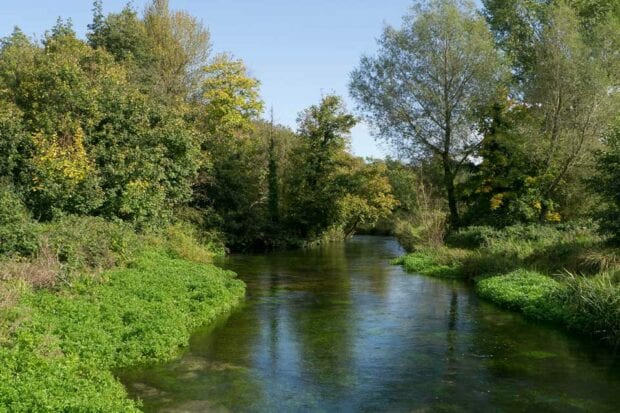
Untreated sewage discharged into our waterways can be devastating to human health, local biodiversity and our environment.
There has been coverage today (24 November) in the BBC, Evening Standard, Independent and Financial Times reporting that water companies have released sewage into UK rivers and seas almost 150 times during dry weather over the last 12 months, following analysis in Surfers Against Sewage’s (SAS) latest water quality report. The group also suggest that 95 of these discharges were at bathing water locations classed as “excellent”, and that this links to a correlation between these spills and cases reported to the SAS of people becoming unwell.
This government wants clean and safe rivers, lakes and seas, and we have been clear that we will hold water companies to account if they do not comply with our environmental regulations.
This can include criminal prosecution by the Environment Agency (EA) for the most serious offences - for which there can be unlimited fines. Since 2015 the EA has brought 56 prosecutions against water and sewerage companies, securing fines of over £141m. This includes a record £90 million fine for Southern Water last year after they pleaded guilty to thousands of illegal discharges of sewage.
Our Storm Overflows Discharge Reduction Plan, published in August, will also bring about change, with strict targets on sewage pollution and a requirement for further investment into infrastructure from water companies.
The plan frontloads action in particularly important and sensitive areas such as designated bathing waters and high priority ecological sites.
If it is possible to go further and faster while balancing the cost to consumers, we will not hesitate to do so and have made this clear to the water industry. The government will review the targets in 2027, so we stay as ambitious as possible whilst balancing the impact on bills.
At the beginning of September, we also challenged water company executives to take action on protecting the environment and safeguarding our water supplies. We are working with the water companies to establish where they can do more, as well as identify opportunities to speed up delivery.
A Defra spokesperson said:
We are going further and faster than any other government to protect and enhance the health of our rivers, lakes and seas.
“We have brought in strict targets on sewage pollution and will require water companies to deliver the largest infrastructure programme in their history to tackle storm sewage discharges – a £56 billion capital investment over 25 years.
“We have been clear that water companies cannot profit from environmental damage. Through increased monitoring and transparency, driven by government, the regulators have launched the largest criminal and civil investigations into water company sewage treatment works ever.
“Regulators will use all options for robust enforcement action and will continue to prioritise action to protect bathing waters and high priority nature sites.
Please see the latest Environment Agency and Ofwat updates for more information on the industry-wide criminal and civil investigations into potential non-compliance by all the water companies at sewage treatment works.
4 comments
Comment by Michael Hughes posted on
Try diverting some of their vast profits into investment. That would help. The big mistake was privatisation. Too many of the people in charge see water as a cash cow not a vital public service as it once was.
Comment by Michael Desmond Walters posted on
Loads and loads of words, the fact that it is still happening speaks volumes.
Comment by Derek Stewart Smith posted on
Whilst a revue is scheduled for 2027, it is imperative to continually inspect all the outfalls particularly during periods of high rainfall to ensure that the discharges do not include stored sewage in the storm tanks at sewage works.
A construction programme must be immediately implemented to increase the capacity of storm tanks to enable full retention of all raw sewage and an increase in the size of the treatment plant to enable all raw sewage to be fully treated before being discharged via the approved outfalls.
The programme must include early completion dates which have to be adhered to.
Failure to comply would automatically attract heavy fines.
Comment by John W. Baxter posted on
At last! Are we about to see some regulation applied other than a few totemic fines to flagrant disregard for the law exhibited by dividend paying utilities. I see Defra has come out with slurry storage grants for farms which will hopefully prevent the water companies from pointing a finger at farming with any meaning.
To find water companies discharging waste water of untreated quality to watercourse during times of drought is indicative of two things....lack of real time information being fed to or gathered by EA, cost cutting by water companies and/ total disregard for outcomes and maintenance and upgrading of waste water treatment capacity.......It is bad enough in times of high rainfall but in dry weather this is inexcusable......and why should the bill payers be expected to stump up the capital needed to upgrade Victorian infrastructure?......that is what business is all about.....balancing drawings profits and investment in people and infrastructure. No more excuses!.